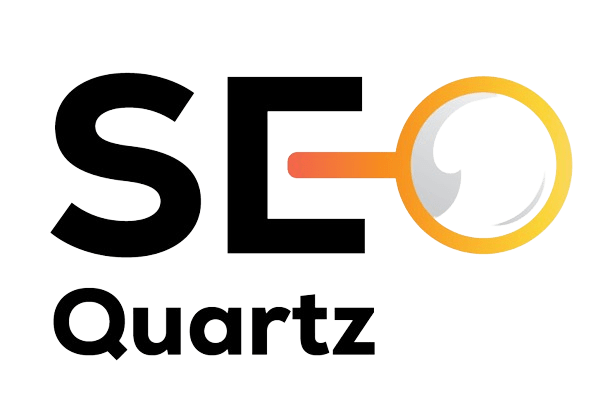Pros and Cons of One-Page and Multiple-Page Websites
In the ever-evolving landscape of web design, the debate between one-page and multiple-page websites continues to capture the attention of designers, developers, and business owners alike. Both approaches have their own set of advantages and disadvantages, making the decision between them crucial for wordpress web design and development projects. In this blog post, we’ll delve into the pros and cons of both one-page and multiple-page websites to help you make an informed decision for your next web endeavor.
One-Page Websites
Pros:
Simplicity:
One-page websites offer a straightforward and minimalist user experience. With all content condensed into a single page, visitors are guided through a linear narrative, eliminating the need for navigation menus and reducing distractions.
Faster Loading Times:
Since one-page websites contain fewer elements and require fewer HTTP requests, they tend to load faster than their multi-page counterparts. This is especially beneficial for mobile users and those with slower internet connections.
Enhanced User Engagement:
By presenting information in a linear format, one-page websites can captivate visitors with compelling storytelling and visually appealing design elements. This can lead to increased user engagement and higher conversion rates.
Mobile-Friendly Design:
With the rise of mobile browsing, one-page websites are inherently mobile-friendly. Their responsive design with the help of website design services ensures seamless navigation and optimal viewing experiences across various devices, without the need for complex mobile optimization strategies.
Ease of Maintenance:
Managing a one-page website is typically less time-consuming than maintaining a multi-page site. With all content consolidated onto a single page, updates and modifications can be implemented quickly and efficiently.
Cons:
- Limited Content: One-page websites are not suitable for content-heavy projects or businesses with diverse offerings. The condensed nature of these sites can restrict the amount of information that can be conveyed, potentially leaving visitors craving more detailed insights.
- SEO Challenges: Optimizing a one-page website for search engines can be challenging, as there is limited opportunity to target multiple keywords and create separate landing pages. This can impact organic visibility and hinder the site’s ability to rank competitively in search engine results.
- Scrolling Fatigue: While scrolling is an inherent part of the one-page website experience, excessive scrolling can lead to user fatigue and frustration, particularly for visitors seeking specific information. Designers must strike a balance between engaging storytelling and user-friendly navigation to mitigate this issue.
- Navigation Limitations: Unlike multi-page websites, one-page sites lack traditional navigation menus, making it difficult for users to jump to specific sections or pages. This can be problematic for visitors who prefer to navigate using familiar menu structures.
- Limited Conversion Opportunities: One-page websites may struggle to accommodate complex conversion funnels or multiple call-to-action points. Without distinct landing pages and navigation paths, converting visitors into leads or customers can be challenging.

Multiple-Page Websites
Pros:
- Scalability: Multiple-tab websites offer virtually limitless scalability, allowing businesses to expand their online presence as needed. With the ability to create multiple landing pages, blog posts, and product/service pages, these sites can accommodate diverse content and offerings.
- SEO Flexibility: Unlike one-page websites, multi-tab sites provide ample opportunities for keyword targeting and content optimization. By creating individual pages for specific topics and keywords with the help of search engine marketing services, businesses can improve their organic search visibility and attract targeted traffic.
- Enhanced Navigation: With traditional navigation menus and hierarchical page structures, multi-page websites offer intuitive navigation experiences for users. Visitors can easily explore different sections of the site and find the information they need without excessive scrolling or searching.
- Content Organization: Multi-tab websites allow for better organization and categorization of content, making it easier for visitors to locate relevant information. By grouping related content into distinct pages, businesses can streamline the user experience and facilitate information discovery.
- Conversion Optimization: With multiple landing pages and conversion funnels, multi-page websites provide ample opportunities for conversion optimization. Businesses can experiment with different call-to-action placements, designs, and messaging to maximize conversion rates and drive desired actions.
Cons:
Complexity:
Managing and maintaining a multi-page website can be more complex and time-consuming than maintaining a one-page site. From content updates to navigation adjustments, there are more elements to oversee and coordinate, requiring careful planning and organization.
Higher Development Costs:
The development of a multi-page website typically requires more time and resources than building a one-page site. From designing multiple templates to integrating complex navigation structures, the upfront costs associated with multi-tab websites can be higher.
Slower Loading Times:
Due to the higher number of pages and assets, multi-tab websites may experience slower loading times compared to single page sites. This can impact the user experience, particularly for visitors with slower internet connections or less powerful devices.
Mobile Optimization Challenges:
While multi-page websites can be optimized for mobile devices, ensuring consistent and user-friendly experiences across various screen sizes can be challenging. Designers must implement responsive design principles and mobile optimization techniques to mitigate potential issues.
Navigation Complexity:
As multi-page websites grow in size, the complexity of navigation can increase, potentially overwhelming visitors with too many options. A professional website designer must strike a balance between providing comprehensive navigation and avoiding clutter and confusion.
The Bottom Line
Ultimately, the project’s objectives, specifications, and personal preferences will determine whether a one-page or multiple-page website is more suitable. Websites that only have one page are great for portfolios, promotional campaigns, and small enterprises because of how engaging, quick, and easy they are to use. Sites with many pages are more suited to content-rich platforms, e-commerce sites, and bigger organizations because of their scalability, SEO flexibility, and conversion optimization features. Businesses can build web presences that work for them by using this article as a guide to weigh the benefits and drawbacks and make educated decisions.
Ready to build your perfect website?
Explore the possibilities with SEO Quartz! Whether you’re looking for a sleek one-page design or a robust multi-page platform, we’ve got you covered. Visit SEOQuartz.com now and take the first step towards your online success.
Empower your web presence today!

